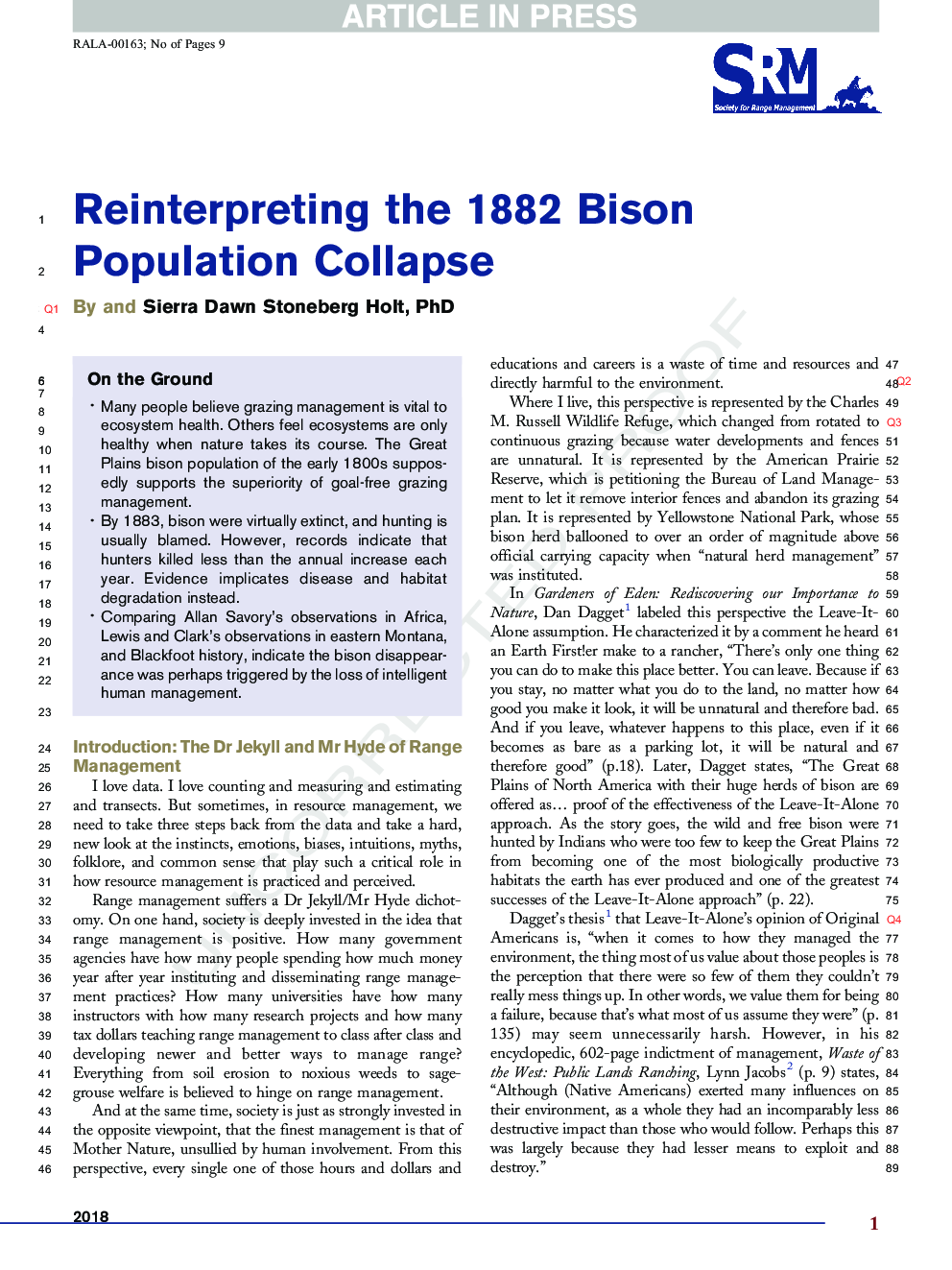| Article ID | Journal | Published Year | Pages | File Type |
|---|---|---|---|---|
| 8965900 | Rangelands | 2018 | 11 Pages |
Abstract
On the Ground
- Many people believe grazing management is vital to ecosystem health. Others feel ecosystems are only healthy when nature takes its course. The Great Plains bison population of the early 1800s supposedly supports the superiority of goal-free grazing management.
- By 1883, bison were virtually extinct, and hunting is usually blamed. However, records indicate that hunters killed less than the annual increase each year. Evidence implicates disease and habitat degradation instead.
- Comparing Allan Savory's observations in Africa, Lewis and Clark's observations in eastern Montana, and Blackfoot history, indications are the bison disappearance was perhaps triggered by the loss of intelligent human management.
- Many people believe grazing management is vital to ecosystem health. Others feel ecosystems are only healthy when nature takes its course. The Great Plains bison population of the early 1800s supposedly supports the superiority of goal-free grazing management.
- By 1883, bison were virtually extinct, and hunting is usually blamed. However, records indicate that hunters killed less than the annual increase each year. Evidence implicates disease and habitat degradation instead.
- Comparing Allan Savory's observations in Africa, Lewis and Clark's observations in eastern Montana, and Blackfoot history, indications are the bison disappearance was perhaps triggered by the loss of intelligent human management.
Related Topics
Life Sciences
Agricultural and Biological Sciences
Agricultural and Biological Sciences (General)
Authors
Sierra Dawn Stoneberg Holt,
